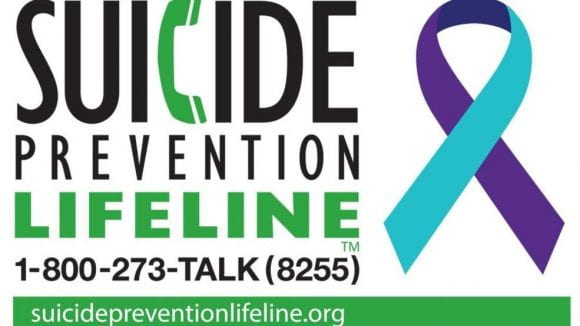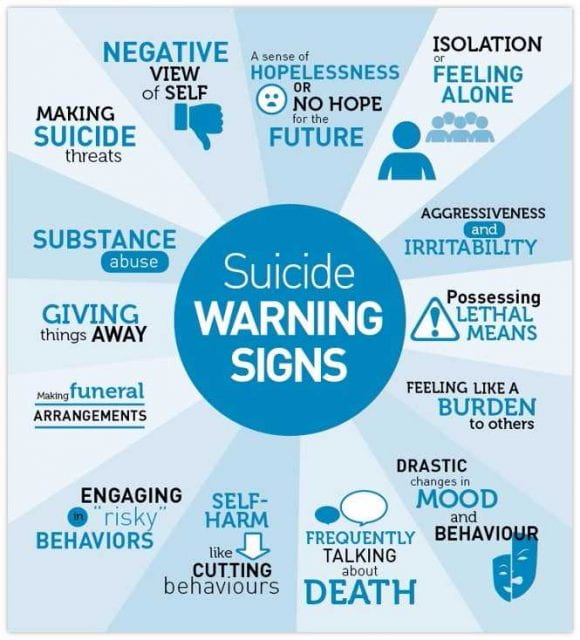Suicide is the tenth leading cause of death in the United States. Suicide is a serious topic within the general population, as well as the military. Suicide rates for active-duty service members and veterans are rising. According to statistics, 20 veterans die by suicide each day (Giacomo, 2019.) It is not just members of the service that deal with stress, but families undergo many stressors and experience a variety of exposures while dealing with the military lifestyle. Veterans are victims of suicide due to many reasons, including failure to adapt back into civilian life, a process many find challenging, the feeling of helplessness, and dealing with Post Traumatic Symptom Disorder (PTSD).
One of the most significant battles is the military is seeking mental health treatment. Why? Because it goes against everything we are taught in boot camp. We are told to push through the pain and to think of everybody else before self. It is teaching us one team one fight culture, although this is contradicting because many of us associate that with keeping our needs and feelings to ourselves. There are many myths as to why service members are afraid or don’t come forward about mental health. One myth that is known amongst service members is that a psychological health condition or seeking professional help will automatically disqualify you for a security clearance. In fact, less than 1% of security clearance denials and revocations involve psychological health concerns. We can educate and prevent by bringing awareness to current trends and statistics in military health, to break the stigma regarding reprimands for seeking mental health, loss of security clearance/ active duty status, and other mental health myths.
There is no single cause for suicide. We have to pay attention to those around us and reach out if they show drastic changes and signs. The importance of knowing the warning signs is as critical as saving a life. Each suicide is one too many, and we need as much help to save lives. Suicide can’t be predicted but can be prevented. Seeking help is a sign of strength. September is the official Suicide Prevention Month.
Giacomo, C. (2019, November 1). Suicide Has Been Deadlier Than Combat for the Military. Retrieved February 13, 2020, from https://www.nytimes.com/2019/11/01/opinion/military-suicides.html.
Staglin, Garen. “The U.S. Military Can Lead The Way In Mental Health And Suicide Prevention.” Forbes, 21 Nov. 2019, www.forbes.com/sites/onemind/2019/11/21/the-us-military-can-lead-the-way-in-mental-health-and-suicide-prevention/#69e15b4e78ca.
Tags: depression, life, Mental health, mental illness, military, stress, suicide, Trauma, veterans




Hi. This was an interesting blog post. I served in the US Navy back in the 90s during Desert Storm. I actually held security clearances: both Top Secret, Secret and Nato, and I totally agree with what you shared about the fear of getting help if you are military and holding positions with clearances for that reason.
The post traumatic stress is real that many veterans experience as well, depending on the tour that they were on. I do agree on some difficult transitioning back into civilian life. Originally, to me, when one first gets out of the military and released back to society it is a type of culture shock, that can be very stressful and frustration because everything is so known and set how things operate. I myself even experienced some of this when I left the military back in 1997. You look for that comfort that you once had in the “chain of command” that is known, or your duties, or the training or knowing who to go to, where to go, what, when, and how. I ended up applying everything I learned as if I was in some sort of duty command to deal with being a civilian again. Which was great for my survival and adjustment, but again, I initially felt some frustration transitioning back to the real world.
I didn’t realize the rates of suicide were that high, especially for the military. I am glad there is more help now and more of a voice to seek the help. I am glad that stigma is being removed. I also agree families do experience all types of emotions from a loved one that is in military and is not home, etc. It can be difficult and cause fears, frustrations, depression, and suicide. Warning signs definitely should be put out there through educating people on them. Great job!
This was informational on a topic that people may deem as sensitive and I’m glad that you have brought more awareness to it. I wasn’t aware of how common suicide is within the military and it’s unfortunate that the rates are rising. To read that that many veterans die by suicide in one day alone is so crazy and devastating to hear. To take on that choice to join and having to struggle with the anxiety and stressful situations/feelings that come with it can really take a toll on a person, like leaving family behind for long periods of time, moving around a lot, being in exposed situations, having certain experiences, etc. Sometimes it’s forgotten that we’re all human who deal with and struggle with different things, especially with mental health. It’s great to think of other people and their protection while fighting to protect the country, but one’s own mental health is so important and I don’t think that’s stressed as enough as it should be. Bottling up emotions/feelings can build up and lead to negative thoughts, which could lead the individual to get into a dark state of mind, eventually becoming suicidal. While far away from family and friends, the individual might channel in on that feeling of isolation away from everyone they care about. Post Traumatic Stress Disorder (PTSD) can create an increased risk in suicidal ideations. The U.S. Department of Veteran Affairs speaks about how the risk of suicide is higher within those that have PTSD (Veterans Affairs, 2007). Studies have shown that Veterans that have PTSD have a large connection between guilt they have in relation to combat and thoughts/attempts of suicide (Veterans Affairs, 2007). The individual could have trouble coping with the guilt of what they did, didn’t do, witnessed, etc. during their time in the military and they might feel too overwhelmed to handle it all inside anymore and unfortunately might think that the only solution to stop it is suicide. I appreciate you sharing a bit about the difficulty of getting mental health while in the military. There should be more education for people on the warning signs so that people can help those that may be dealing with this. I hope that more awareness is brought to this topic sooner, the stigma is removed, and more ways of prevention and help are found so that all those that are struggling with this, including those in the military, can find a safe place.
Works Cited:
VA.gov: Veterans Affairs. (2007, January 1). Retrieved from https://www.ptsd.va.gov/understand/related/suicide_ptsd.asp